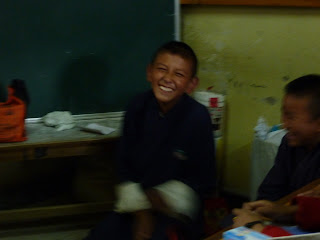She is frightened of the night. Not because of ghosts. She has never really believed in it anyway. Since being posted as a teacher in a remote school in Trongsa dzongkhag, Zangmo (name changed on request) has become the target of unknown local men who come under the protection of darkness to “trouble” her- frequently. She has become terrified of them.”I wake up in the middle of the night distressed to hear intruders climbing my window, trying to open it,” Zangmo told Kuensel.At another time, intruders, unable to open her window, walked around her house, knocking at her door, trying to force it open, rattling it, and calling her out.The first time she heard somebody trying to open her window she broke down with panic and “cried the whole night”. That was a few months ago, barely a few days after her posting to the place.”I didn’t know how to react,” said Zangmo. “It made me feel so low and unhappy with life.
”A female colleague told her that it was “night hunting” and that it was the village norm. It was not that Zangmo had not heard the term before. The idea sickened her. But facing this so called culture at such close quarters filled her mind with fear and loathing.There is no electricity in the village. So the 27-year old teacher, whose house is next to the school, keeps her kerosene lamp burning the entire night, just in case. She checks her doors and windows are shut properly before dark. As a companion, she keeps with her a class VII schoolgirl, whom she also looks after.When noises at night outside her house persist, she wakes up the girl and waits in a corner for the sound to go away. There is no telephone.”I got to bed prepared to wake up anytime I hear some noises,” said Zangmo.She has not made official complaints to any authority.”Whom should we complain to?” said Zangmo.
”I can’t complain because I’m worried that people will make fun of me,” said Zangmo. “I told a male colleague about my predicament the other day and he had a nice laugh out of it.”So far Zangmo has managed to keep herself safe.Some village girls say that most night-hunting was not consensual in the least. And the men were complete strangers – nameless and faceless. Sometimes they came from town. Girls sound asleep after a day’s farm labour had hardly any time to protest before it was too late. The stranger would have crept through the open attic or forced open the poorly shut door or window with a knife to squirm in. The entire business was forced entry, they said. Some became pregnant as a result. Since it was deemed a norm, most rural girls accepted the practice.
No one usually ever went anywhere to complain.But Zangmo is a teacher. And she knows. She says she won’t accept it.Zangmo, however, is not alone in her predicament. Other female teachers posted in remote schools share her experience.In Langthel lower secondary school (Trongsa), where most teachers live in traditional Bhutanese houses with no attached bathrooms, female teachers told Kuensel that it was unsafe to go to toilets at night.In Tangsibji lower secondary school (Trongsa), drunken men tormented female teachers living in empty classrooms. Men knocked on their doors and tried to break their windows open.”A person kept walking on the class ceiling,” said a teacher.When teachers complained about the incident to the locals the next day, a few men charged them. It took the village tshogpa’s intervention to calm things down then and later resolve the issue.A female health worker posted at the place told Kuensel: “The men keep climbing my window and calling my name out. But I’ve iron grill windows so I feel safe. But you never know. People drink and they can do anything. (Kuenselonline, Oct 1st 2008)
Ludivine de Rancourt
Ludivine de Rancourt



































